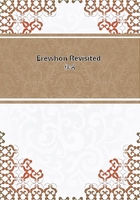
第2章
It was Chowbok who, if he did not originate these calumnies, did much to disseminate and gain credence for them. He remained in England for some years, and never tired of doing what he could to disparage my father. The cunning creature had ingratiated himself with our leading religious societies, especially with the more evangelical among them. Whatever doubt there might be about his sincerity, there was none about his colour, and a coloured convert in those days was more than Exeter Hall could resist. Chowbok saw that there was no room for him and for my father, and declared my poor father's story to be almost wholly false. It was true, he said, that he and my father had explored the head-waters of the river described in his book, but he denied that my father had gone on without him, and he named the river as one distant by many thousands of miles from the one it really was. He said that after about a fortnight he had returned in company with my father, who by that time had become incapacitated for further travel. At this point he would shrug his shoulders, look mysterious, and thus say "alcoholic poisoning" even more effectively than if he had uttered the words themselves. For a man's tongue lies often in his shoulders.
Readers of my father's book will remember that Chowbok had given a very different version when he had returned to his employer's station; but Time and Distance afford cover under which falsehood can often do truth to death securely.
I never understood why my father did not bring my mother forward to confirm his story. He may have done so while I was too young to know anything about it. But when people have made up their minds, they are impatient of further evidence; my mother, moreover, was of a very retiring disposition. The Italians say:-"Chi lontano va ammogliare Sara ingannato, o vorra ingannare.""If a man goes far afield for a wife, he will be deceived--or means deceiving." The proverb is as true for women as for men, and my mother was never quite happy in her new surroundings. Wilfully deceived she assuredly was not, but she could not accustom herself to English modes of thought; indeed she never even nearly mastered our language; my father always talked with her in Erewhonian, and so did I, for as a child she had taught me to do so, and I was as fluent with her language as with my father's. In this respect she often told me I could pass myself off anywhere in Erewhon as a native; I shared also her personal appearance, for though not wholly unlike my father, I had taken more closely after my mother.
In mind, if I may venture to say so, I believe I was more like my father.
I may as well here inform the reader that I was born at the end of September 1871, and was christened John, after my grandfather.
From what I have said above he will readily believe that my earliest experiences were somewhat squalid. Memories of childhood rush vividly upon me when I pass through a low London alley, and catch the faint sickly smell that pervades it--half paraffin, half black-currants, but wholly something very different. I have a fancy that we lived in Blackmoor Street, off Drury Lane. My father, when first I knew of his doing anything at all, supported my mother and myself by drawing pictures with coloured chalks upon the pavement; I used sometimes to watch him, and marvel at the skill with which he represented fogs, floods, and fires. These three "f's," he would say, were his three best friends, for they were easy to do and brought in halfpence freely. The return of the dove to the ark was his favourite subject. Such a little ark, on such a hazy morning, and such a little pigeon--the rest of the picture being cheap sky, and still cheaper sea; nothing, I have often heard him say, was more popular than this with his clients.
He held it to be his masterpiece, but would add with some naivete that he considered himself a public benefactor for carrying it out in such perishable fashion. "At any rate," he would say, "no one can bequeath one of my many replicas to the nation."I never learned how much my father earned by his profession, but it must have been something considerable, for we always had enough to eat and drink; I imagine that he did better than many a struggling artist with more ambitious aims. He was strictly temperate during all the time that I knew anything about him, but he was not a teetotaler; I never saw any of the fits of nervous excitement which in his earlier years had done so much to wreck him. In the evenings, and on days when the state of the pavement did not permit him to work, he took great pains with my education, which he could very well do, for as a boy he had been in the sixth form of one of our foremost public schools. I found him a patient, kindly instructor, while to my mother he was a model husband. Whatever others may have said about him, I can never think of him without very affectionate respect.
Things went on quietly enough, as above indicated, till I was about fourteen, when by a freak of fortune my father became suddenly affluent. A brother of his father's had emigrated to Australia in 1851, and had amassed great wealth. We knew of his existence, but there had been no intercourse between him and my father, and we did not even know that he was rich and unmarried. He died intestate towards the end of 1885, and my father was the only relative he had, except, of course, myself, for both my father's sisters had died young, and without leaving children.